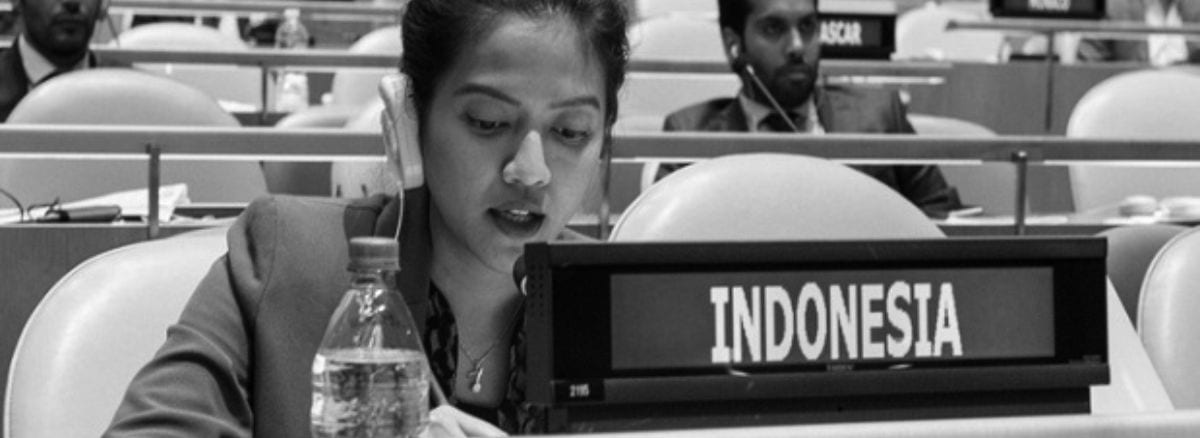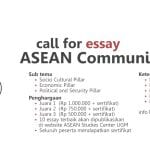The Way of ASEAN Non-Confrontation: Backdoor Diplomacy or The Inability to Conduct Diplomacy in Public Spaces

Dio Herdiawan Tobing, Research Intern at ASEAN Studies Center UGM
In the past few days, Indonesia’s first Right of Reply in the United Nations General Assembly (UNGA) has attracted nation-wide Indonesia medias. Not because Indonesia’s statement was outstanding, but merely because of its firmness and the beauty of Indonesia’s representative. However, we found out that to some extent Indonesia’s statement focused heavily on sovereignty and territorial integrity, as well as, the institutionalization of human rights commitment by the numbers of ratified conventions. This does not show any advantages. It opens a loophole that Indonesia was unable to show evidence of the progress made in Papua related to the human rights violation.
Meanwhile, the second Right of Reply embraced by Solomon Islands, shows intelligence, diplomatic, and well-researched information. Solomon Islands, though, only a very small archipelagic country showed its concern on human rights issue in West Papua by reminding Indonesia that although Indonesia has ratified the Convention against Torture (CAT), progress has not yet been made in Papua. In fact, Indonesia has not yet submitted its Periodic Review since 2008. The Solomon claimed that they received information on the lack of human rights protection of the Melanesian people in West Papua from the Respected UN members and head of civil societies.
Furthermore, it is also regretful to hear that in another right of reply utilized by Indonesia to respond against Solomon Islands, the Republic again justified that Solomon Islands’ concern has breached Indonesia’s sovereignty and territorial integrity, and claiming that Solomon Islands is trapped in trash information of the separatist group in West Papua. Again, without elaborating on what progress has been made and what form for commitment has been implemented by the Indonesian government towards promotion and protection of human rights in West Papua.
In fact, this occasion reminded us of Southeast Asian countries conducting their diplomatic activities. The ASEAN’s method of diplomacy, has been seen upholding the norm of sensitivity, politeness, non-confrontation and agreeability, and the principle of quiet. ASEAN members in their decision- and policy-making process have always refrained from criticizing others, claiming that criticizing other respective members of ASEAN will fall into the violation of non-interference principle and respect of sovereignty and territorial integrity. It is similar, on what the delegation of Indonesia delivered in her right of reply, that the concern of Solomon Islands’ towards human rights situation in West Papua will only disrespect Indonesia’s sovereignty and territorial integrity.
However, in other occasion, ASEAN has a method famously known as ‘constructive-engagement’. ASEAN and particularly, Indonesia, have been progressively utilizing this tool to put concern on the human rights situation in Myanmar. In 2009 Indonesia had bilateral talk with Myanmar in regards to the Rohingya massacre. This occasion became a cornerstone because during the talk, it was the first time that Prime Minister Thein Sein finally acknowledged that he paid great attention to this issue. Myanmar finally accepted that Rohingya was also their concern. Wasn’t the talk breach Myanmar’s sovereignty and territorial integrity? Actually, it was too, yet the difference is the operation of ASEAN’s constructive engagement remains invisible. Because the diplomatic-negotiation has never been done in public spaces, claiming that it is the feature of ASEAN’s diplomacy, backdoor diplomacy, or for some, how ASEAN conducts its intra- or inter-ASEAN relations have become a model named as “Asian Diplomacy”
Therefore, reflecting on the case of Solomon Islands-Indonesia in the UNGA and Indonesia-Myanmar in ASEAN, the conduct of ASEAN Diplomacy shows only an excuse for ASEAN in particular, Indonesia, upon their inability to demonstrate a proper diplomatic behavior in public spaces.




